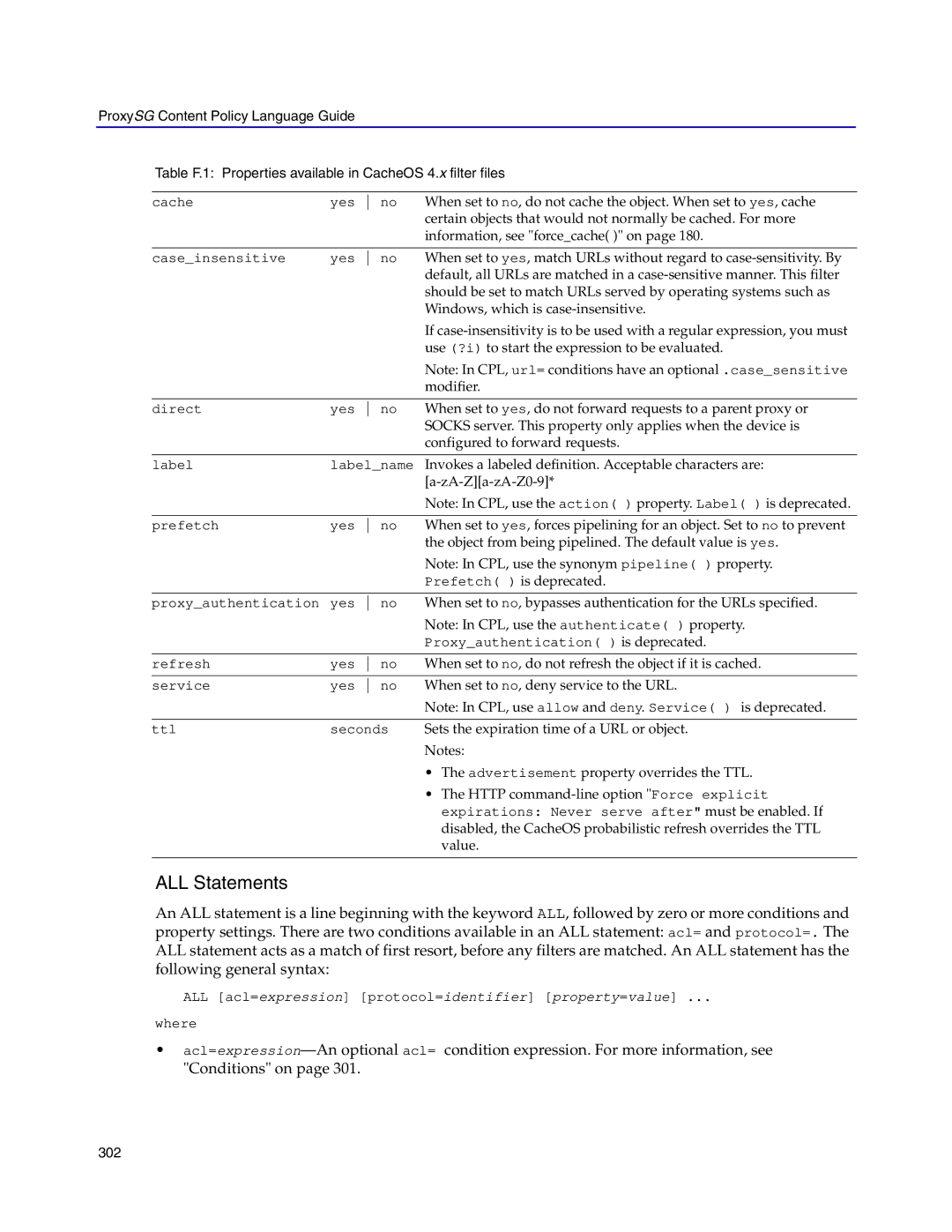
ProxySG Content Policy Language Guide
Table F.1: Properties available in CacheOS 4.x filter files
cache | yes no | When set to no, do not cache the object. When set to yes, cache |
|
| certain objects that would not normally be cached. For more |
|
| information, see "force_cache( )" on page 180. |
|
|
|
case_insensitive | yes no | When set to yes, match URLs without regard to |
|
| default, all URLs are matched in a |
|
| should be set to match URLs served by operating systems such as |
|
| Windows, which is |
|
| If |
|
| use (?i) to start the expression to be evaluated. |
|
| Note: In CPL, url= conditions have an optional .case_sensitive |
|
| modifier. |
direct | yes no | When set to yes, do not forward requests to a parent proxy or |
|
| SOCKS server. This property only applies when the device is |
|
| configured to forward requests. |
|
|
|
label | label_name | Invokes a labeled definition. Acceptable characters are: |
|
| |
|
| Note: In CPL, use the action( ) property. Label( ) is deprecated. |
prefetch | yes no | When set to yes, forces pipelining for an object. Set to no to prevent |
|
| the object from being pipelined. The default value is yes. |
|
| Note: In CPL, use the synonym pipeline( ) property. |
|
| Prefetch( ) is deprecated. |
proxy_authentication | yes no | When set to no, bypasses authentication for the URLs specified. |
|
| Note: In CPL, use the authenticate( ) property. |
|
| Proxy_authentication( ) is deprecated. |
refresh | yes no | When set to no, do not refresh the object if it is cached. |
service | yes no | When set to no, deny service to the URL. |
|
| Note: In CPL, use allow and deny. Service( ) is deprecated. |
ttl | seconds | Sets the expiration time of a URL or object. |
|
| Notes: |
|
| • The advertisement property overrides the TTL. |
|
| • The HTTP |
|
| expirations: Never serve after" must be enabled. If |
|
| disabled, the CacheOS probabilistic refresh overrides the TTL |
|
| value. |
|
|
|
ALL Statements
An ALL statement is a line beginning with the keyword ALL, followed by zero or more conditions and property settings. There are two conditions available in an ALL statement: acl= and protocol=. The ALL statement acts as a match of first resort, before any filters are matched. An ALL statement has the following general syntax:
ALL [acl=expression] [protocol=identifier] [property=value] ...
where
•
302
